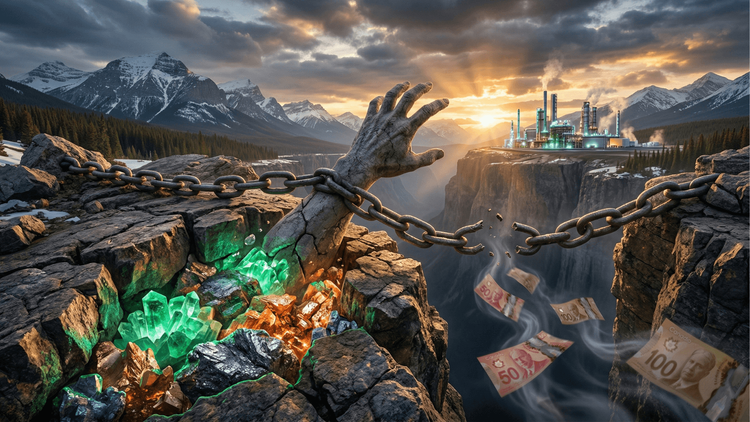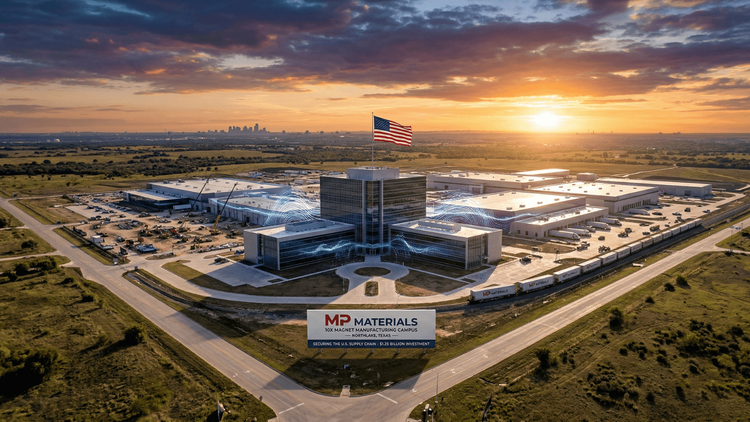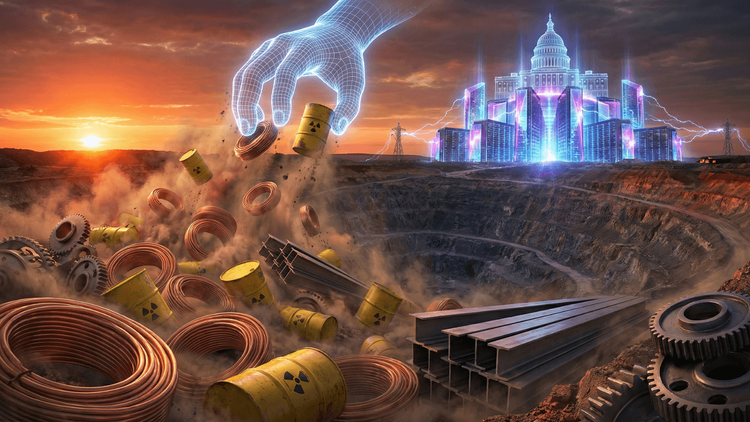Can a US-Congo Deal Unlock Trillions in Mineral Wealth and Stability?
How the Democratic Republic of Congo’s vast mineral wealth and ongoing conflicts shape its future—and what a U.S. partnership could mean.

The Democratic Republic of Congo (DRC) is a country of immense natural wealth, yet it has been mired in conflict for decades. From ethnic and political violence to disputes over its vast mineral resources, the country remains at the heart of global geopolitical struggles. As the United States considers a minerals deal with the Congolese government, the world is watching closely to see how this complex nation navigates its path forward.
A History Marked by War and Unrest
The roots of the DRC's ongoing instability can be traced back to the 1994 Rwandan Genocide. In the wake of the mass killings carried out by Hutu extremists, nearly two million Hutu refugees fled into eastern Congo. Among them were remnants of the forces responsible for the genocide, who soon formed militias. This sparked a chain reaction, with Tutsi groups organizing their own armed factions in response. What followed was years of violent clashes, with external forces from neighboring countries adding to the chaos.
In 2012, the M23 rebel group seized control of the key city of Goma. Though they withdrew under international pressure, they re-emerged in 2021, this time with an estimated 6,500 fighters. Their resurgence led to further displacement of civilians, attacks on refugee camps, and disruption of critical supply routes. Despite efforts at peace talks, the violence has not abated, leaving the eastern DRC in a constant state of turmoil.
The World’s Richest Nation in Natural Resources
Beneath the turmoil, the DRC holds a fortune in natural resources. With untapped mineral deposits valued at approximately $24 trillion, it is one of the wealthiest nations in the world—at least in terms of potential. The country supplies 68% of the world’s cobalt, an essential mineral for the battery industry. It is also the fourth-largest producer of diamonds and boasts significant lithium reserves, making it a key player in the transition to renewable energy.
However, these riches have also made the DRC a battleground for foreign interests. China dominates much of the country’s mining sector and has provided the Congolese government with drones and weaponry to protect its mines. Other regional powers, including Uganda, Burundi, and South Africa, have their own stakes in the ongoing conflict, each supporting different factions to secure their interests.
A Potential U.S.-Congo Partnership in the Making
The United States is now considering a minerals deal with the DRC in exchange for security assistance. Congolese President Felix Tshisekedi has expressed interest in working with the U.S., stating that his country is eager to develop its mineral sector while also ensuring stability. He envisions a partnership that not only extracts resources but also processes them within the country, creating jobs and fostering long-term economic growth.
Tshisekedi believes that the U.S. could use diplomatic pressure or sanctions to curb the influence of armed groups operating in the region. He has also acknowledged the growing presence of China in Africa, noting that while Beijing has expanded its influence, the U.S. has become less engaged. He welcomed the idea of renewed American involvement, particularly in the Congolese mining industry, which could provide a much-needed counterbalance to Chinese dominance.
For the U.S., securing access to the DRC’s minerals would be a strategic victory, especially for industries dependent on rare earth elements. Silicon Valley, in particular, relies on cobalt and lithium for battery production, making a stable supply from Congo crucial for the future of clean energy and electric vehicles.
A Fight for Stability and a Legacy Remembered
While resource wealth offers an opportunity, the DRC’s stability remains uncertain. The ongoing violence in the eastern part of the country continues to threaten economic progress. Tshisekedi has called for stronger international measures, including sanctions against those fueling the conflict. Without a resolution, any potential economic partnerships could be jeopardized by security concerns.
Despite its struggles, the DRC has a rich cultural history that extends beyond politics and minerals. The country remains famous for hosting the legendary "Rumble in the Jungle" in 1974, where Muhammad Ali defied expectations and defeated George Foreman in Kinshasa. The fight captivated over a billion viewers worldwide and put the nation on the global stage. Tshisekedi fondly recalled the event, emphasizing how it united the people and showcased the DRC to the world.
As the country looks toward the future, the question remains: Can the Democratic Republic of Congo break free from the cycle of conflict and fully capitalize on its vast wealth? The answer may lie in the strength of its partnerships and the ability to bring lasting peace to its troubled regions. The world is watching, and so is the United States, as both sides consider the next steps in shaping the future of this mineral-rich nation.
Source: #RDC Interview Exclusive du Président Félix Tshisekedi sur Fox News ! Special Report avec @BretBaier






